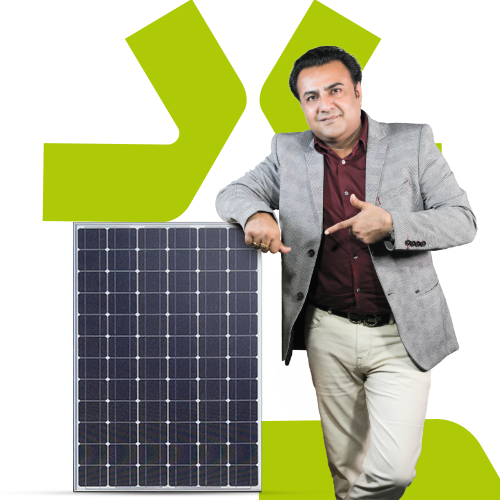In recent years, solar energy has emerged as a game-changer in India’s renewable energy sector. With the increasing demand for sustainable energy solutions, the solar industry has witnessed exponential growth. Among the many players in this sector, one name stands out as a leader—Nexus Solar Energy. But what makes Nexus Solar Energy the No. 1 solar company in India? In this blog, we’ll explore why Nexus Solar Energy is dominating the solar market, its innovative solutions, and how it’s helping India transition to a greener future.
Why Solar Energy is Booming in India
India is blessed with over 300 sunny days a year, making it one of the most solar-rich countries in the world. The government’s push for renewable energy, through initiatives like the National Solar Mission and subsidies for solar installations, has further accelerated the adoption of solar power.
Today, solar energy is not just an eco-friendly choice—it’s a smart financial decision. By switching to solar, you can significantly reduce your electricity bills, achieve energy independence, and contribute to a cleaner environment.
But with so many solar companies in India, how do you know which one to trust? Let’s find out why Nexus Solar Energy is the undisputed leader in the industry.
Who is Nexus Solar Energy?
Nexus Solar Energy is a leading solar energy company in India, specializing in the design, manufacturing, and installation of high-quality solar power systems. With years of experience and a commitment to innovation, Nexus Solar Energy has established itself as the No. 1 solar company in India.
The company offers a wide range of solar solutions, including:
- Solar Panels: High-efficiency solar panels for residential, commercial, and industrial use.
- Solar Inverters: Advanced inverters that ensure optimal energy conversion.
- Solar Street Lights: Energy-efficient lighting for streets and public spaces.
- Off-Grid and On-Grid Solar Systems: Customized solutions to meet diverse energy needs.
What Makes Nexus Solar Energy the No. 1 Solar Company in India?
1. Unmatched Quality and Innovation
Nexus Solar Energy is known for its cutting-edge technology and high-quality products. The company uses advanced manufacturing processes to ensure that its solar panels and inverters are durable, efficient, and reliable.
2. Customer-Centric Approach
Nexus Solar Energy prioritizes customer satisfaction. From the initial consultation to installation and after-sales service, the company provides end-to-end support to ensure a seamless experience.
3. Affordable Pricing
Despite offering premium products, Nexus Solar Energy ensures that its solutions are affordable. The company also assists customers in availing government subsidies and financing options.
4. Wide Reach and Expertise
With a presence in over 20 states and a team of skilled professionals, Nexus Solar Energy has the expertise to handle projects of any scale. Whether it’s a small residential setup or a large industrial installation, the company delivers excellence every time.
5. Sustainability Commitment
Nexus Solar Energy is not just a business; it’s a mission to create a sustainable future. By promoting solar energy, the company is helping reduce carbon emissions and combat climate change.
Nexus Solar Energy’s Impact on India’s Solar Industry
Nexus Solar Energy has played a pivotal role in shaping India’s solar industry. The company has completed numerous landmark projects, including:
- Solar installations for leading corporations
- Government-backed solar initiatives
- Rural electrification projects
These projects have not only boosted the adoption of solar energy but also created job opportunities and contributed to the country’s economic growth.
Why Choose Nexus Solar Energy?
If you’re looking for the best solar company in India, Nexus Solar Energy is the clear choice. Here’s why:
- Proven Track Record: Years of experience and thousands of satisfied customers.
- Comprehensive Solutions: From solar panels to inverters, the company offers everything you need under one roof.
- Expert Guidance: A team of experts to help you choose the right system for your needs.
- Eco-Friendly: Reduce your carbon footprint and save on electricity bills.
Frequently Asked Questions (FAQs)
1. Is Nexus Solar Energy the best solar company in India?
Yes, Nexus Solar Energy is widely regarded as the No. 1 solar company in India due to its high-quality products, customer-centric approach, and innovative solutions.
2. What types of solar systems does Nexus Solar Energy offer?
The company offers a wide range of solar systems, including on-grid, off-grid, and hybrid systems, as well as solar water heaters and street lights.
3. Does Nexus Solar Energy provide installation services?
Yes, Nexus Solar Energy provides end-to-end services, including consultation, installation, and after-sales support.
4. Are Nexus Solar Energy’s products affordable?
Absolutely! The company offers competitive pricing and helps customers avail government subsidies and financing options.
5. How can I contact Nexus Solar Energy?
You can visit their official website or contact their customer support team for more information.








Conclusion
Nexus Solar Energy has earned its reputation as the No. 1 solar company in India through its unwavering commitment to quality, innovation, and customer satisfaction. Whether you’re a homeowner, business owner, or industrialist, Nexus Solar Energy has the perfect solar solution for you.
By choosing Nexus Solar Energy, you’re not just investing in a solar system; you’re contributing to a greener, more sustainable future. So, why wait? Make the switch to solar energy today and join the renewable energy revolution!


